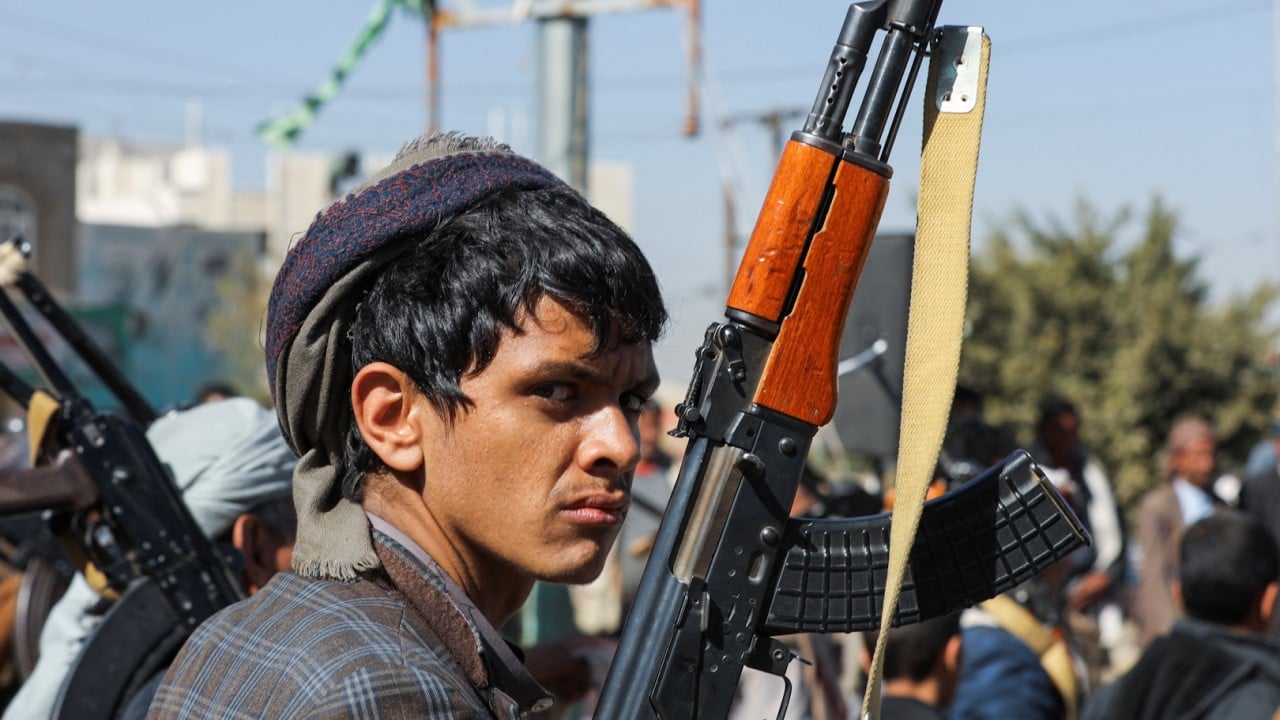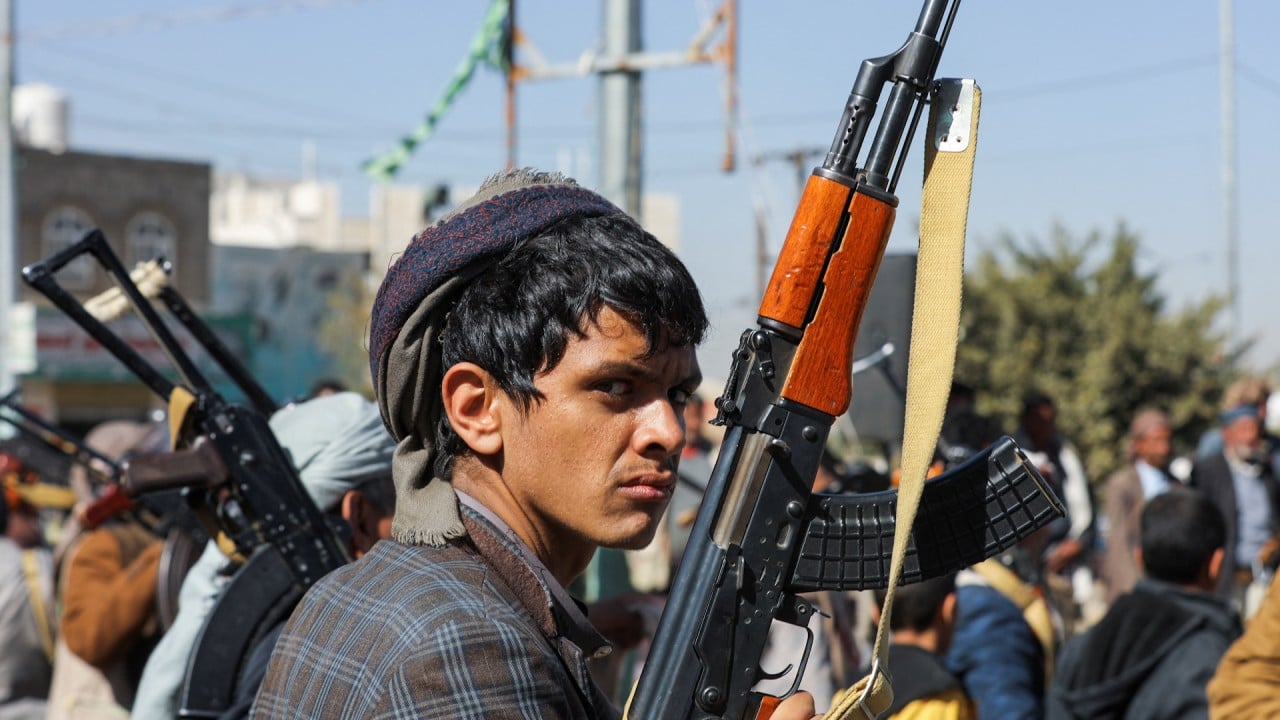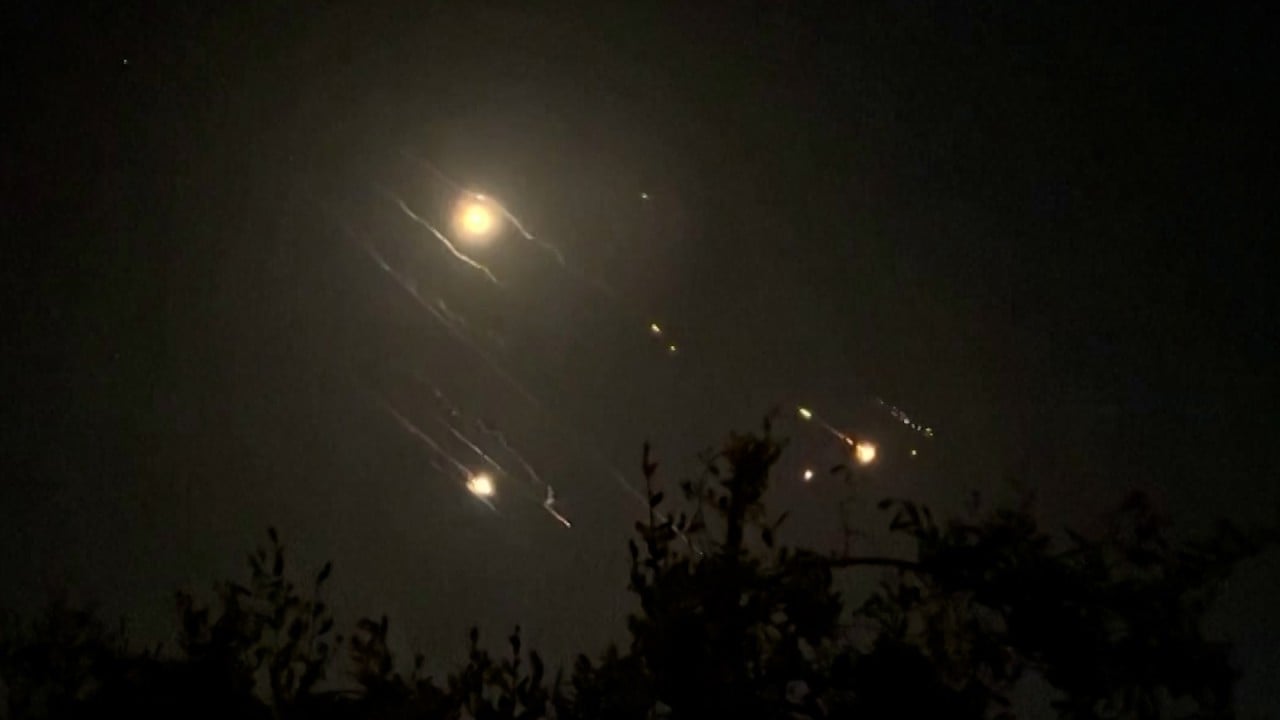Beijing and Riyadh revealed little of the substance of Prince Khalid bin Salman’s trip to the Chinese capital in June, when the Saudi defence minister met his opposite number, Dong Jun, as well as Central Military Commission vice-chairman Zhang Youxia.
Publicly, both sides said they were “open to cooperation” and discussed “coordination efforts to promote international peace and security”.
The visit fuelled speculation that Riyadh could be looking to Beijing to ease pressure from Washington on issues such as human rights and its stand on the Israel-Gaza war.
Defence specialists said the conflict and tensions in the broader Middle East would undoubtedly have been on the agenda – along with Saudi Arabia’s rising arms purchases from China. But Saudi Arabia still saw the United States as its key security partner – even as it increases rapport with and arms purchases from China.
China is believed to have a minor but growing influence in the region, brokering the restoration of diplomatic relations between Saudi Arabia and Iran last year.
The United States has urged China to use its leverage over Iran to rein in Tehran-backed Houthi militants attacking shipping in the Red Sea.
These attacks are a spillover of the Israel-Gaza war, a conflict that Timothy Heath, a senior international defence researcher at the US-based think tank Rand Corporation, said would have been discussed in the Beijing meetings.
“China is likely to [have talked] about the Gaza war and also [hoped to] reassure Saudi Arabia that China is not backing Iran over its Sunni competitors. Instead, China will try to depict itself as neutral and hoping to encourage peace,” he said.
Jesse Marks, a non-resident fellow with the Stimson Centre’s China programme and a former US defence adviser, said Riyadh had low expectations of China’s role in the conflict.
“China will engage rhetorically but neither the US nor Saudi Arabia see China as a reliable mediator in the current conflicts in Gaza or the Red Sea,” Marks said.
“Beijing did not undertake any meaningful actions to encourage a ceasefire in Gaza. When approached by the US and its coalition to help address the Houthi crisis, China chose to not engage and instead used the period of instability to escalate rhetoric against the US and erode its image in the region – an action which was broadly observed by the US officials and others in the region.”
Heath said: “China is building on its robust economic relationship with Saudi Arabia by expanding arms sales, so that is likely to be part of the conversation as well … They are meeting now in part to follow up on major arms sales and defence cooperation.”
Washington remains Riyadh’s largest arms supplier but Saudi Arabia has increased its imports of Chinese weapons in recent years, largely in response to three-year ban on US sales to the kingdom from 2021 over its human rights record.
In 2022, Saudi Arabia signed US$4 billion worth of arms agreements with China, including deals for armed drones, ballistic missiles, and anti-drone laser-based systems, according to a report by Bloomberg.
It also had FC-31 fighter jets – China’s competitor to the US’ F-35 – on show at a Riyadh defence expo earlier this year and its Wing Loong-2 drones have reportedly been used by Saudi Arabia to fight in Yemen.
“I expect China will continue to offer arms to Saudi Arabia at an attractive price and quality. Drones in particular are a Chinese strength and very popular in the region,” Heath said.
Song Zhongping, a former People’s Liberation Army (PLA) instructor, said the high-level meetings in Beijing continued a “long-standing” military cooperation between the two countries.
“China’s military ties with Saudi Arabia have a long history of promoting cooperation, and boosting the diplomatic strategy of Saudi Arabia and other countries to diversify their development,” he said.
That relationship was reflected in October in a joint naval counter-terrorism exercise involving more than 100 service personnel.
But the United States is still Saudi Arabia’s biggest arms supplier, accounting for nearly 80 per cent of the kingdom’s arms imports between 2019 to 2023, according to the Stockholm International Peace Research Institute.
“Beijing and Riyadh maintain some levels of limited defence cooperation, but it is largely dwarfed by Saudi Arabia’s preference for US defence partnerships,” Marks from the Stimson Centre said.
“Sure, we will see a continuation of joint military exercises, military education exchanges, and defence sales, but they will exist as an addition too, not a replacement of US-Saudi defence ties.”
Those ties have stalled somewhat in the past year. Riyadh and Washington were expected to seal a defence treaty last year to help pave the way for normalisation of ties between Saudi Arabia and Israel.
But the October 7 attack on Israel and the war in Gaza put that on hold.
Nevertheless, Heath said, Beijing could not offer Riyadh as much as Washington.
“We should not oversell Saudi’s change. They still value the United States as the preferred security partner, and China simply offers too little beyond arms sales to challenge the US position,” he said.
But Song said that as Saudi Arabia sought diversification and independence in its diplomacy, the kingdom would continue to build ties with China.
“Saudi Arabia needs to act with balance, its independent foreign policy will not entirely depend on the United States. China’s support is inevitable especially if Saudi Arabia wants to diversify its economy,” he said.




